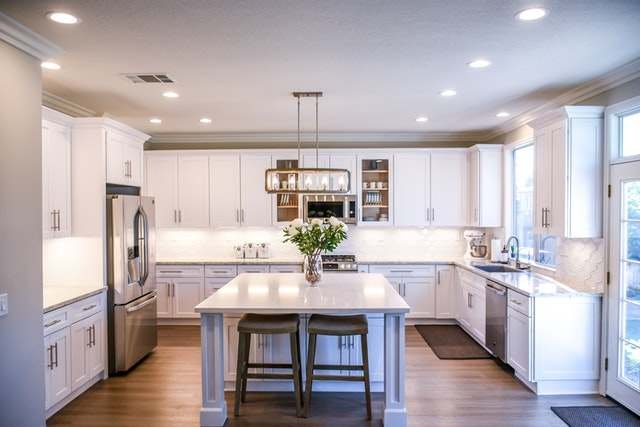Your wedding day is one of the most important days of your life and the music you choose can make it even more special. The first thing that probably comes to mind when thinking about wedding ceremony music is the song you’ll walk down the aisle to, with the elegant flowing bridal gown, bridesmaids in their satin robes, and all. This song sets the tone for the entire ceremony and is one of the most memorable parts of the day.
There are many other important elements to consider when choosing your wedding ceremony music. A basic wedding ceremony music program should include at least three types of songs: preludes, processionals, and recessionals. These songs provide a musical backdrop for the various parts of the ceremony, from the guests’ arrival to the couple’s exit. You may want to consider adding interludes and postludes to your program for a complete musical experience.
Here are some things you need to consider when choosing your wedding ceremony music:
Know the Rules and Restrictions of the Ceremony Venue
Before choosing your wedding ceremony music, it’s important to be aware of any rules and restrictions that may be in place at your venue. Many ceremony sites and officiants have strict guidelines about what type of music can be played during the ceremony, and be sure to be aware of them. For example, some secular locations may have restrictions on the volume of the music or the space allotted for a band, while religious venues may have restrictions on the type of music that can be played. These restrictions can impact the type of music you can choose and the number of musicians you can have, so it’s essential to be aware of them before you start planning.
You should also be aware of any noise or curfew restrictions in your area as they can impact the type of music you can choose, and they may also determine the timing of your ceremony. For example, if there is a noise curfew in your area; you may need to start your ceremony earlier or choose quieter types of music. It’s important to research these restrictions and communicate them to your wedding ceremony musicians so that you can plan accordingly and ensure that your music choices are in compliance with the rules and restrictions in place.
Consider the Size of Your Ceremony Venue
When choosing your wedding ceremony music ensemble, it is important to consider the size of your venue. A huge brass quintet may not be a good match for a small chapel as it can overpower the space. On the other hand, a traditional piano may not be suitable for an outdoor wedding due to its size and requirements for electricity. However, an electric piano can provide an alternative option for outdoor weddings.
If you are considering having a harp as part of your ensemble; it is important to keep in mind the size of your venue and the logistics of bringing it inside. Harps are large instruments and require a significant amount of space; so it is important to make sure there is enough room for them. They may also not be ideal for outdoor weddings as their sound tends to drift upwards and may not be as strong as it would be indoors.
Be Sure to Avoid Surprise Fees at the Venue
Be aware of any hidden fees that may come up too, especially when it comes to the ceremony venue and the cost of the musicians. Ceremony musicians can cost anywhere from $200 to $500 per player, and these costs can add up quickly. To cut back on expenses, take a look at what is already available in your ceremony space. For example, if the hotel ballroom has a grand piano; you can use it instead of paying for another piano to be transported to the venue.
Transportation costs can be a significant factor when it comes to the overall cost of ceremony musicians; especially for larger instruments like harps and pianos. To avoid these fees, consider using what is already available in the ceremony space; or look for musicians who are able to bring their own instruments and provide their own transportation. You already have a lot of expenses on your plate, including bridesmaid robes, the attire of your wedding ensemble, and even your most pricey wedding gown, so be sure to save up on this aspect.
Thoroughly Research Potential Musicians
Researching potential ceremony musicians is a crucial step in ensuring the success of your wedding ceremony. To find musicians who will be a hit with your guests, you can start by asking friends for recommendations; browsing for local musicians in your area, and reading client reviews. It is important to ask for references to make sure the musicians you hire have plenty of experience in accompanying couples down the aisle. Most musicians should have a demo available on their website; which will allow you to hear their work and determine if they are the right fit for your ceremony. If you have the time, it is also a good idea to attend a function where they will be playing live; so you can get a better sense of their style and performance.
Don’t Forget About the Point Person
When it comes to wedding ceremony music, it is important to have a point person who will be responsible for putting together the appropriate musical accompaniment. In most ensembles, this person is the leader who works with clients to create a musical backdrop for the ceremony. They can help you choose between a single instrument, such as an organ or violin; or a larger ensemble with more instruments to create a fuller sound. Keep in mind that the more instruments you have, the higher the cost will be.
Keep in Mind the Ratio of Guests and Musicians
When planning your wedding ceremony, it is important to consider the ratio of guests to musicians. Typically, a quartet is appropriate for a group of 200 guests. To save money, you could opt for a smaller ensemble like a duo or trio; or ask your band or DJ to bring a few microphones or an amplifier. Keep in mind that not all instruments are well suited for amplification, so choose wisely. Guitars and string instruments like violins and cellos tend to sound best when amplified.
Factor in Acoustics
Acoustics also play a significant role in your wedding ceremony. Indoor venues generally have better acoustics, which allows for more options in terms of music. On the other hand, if you have a large number of guests and an outdoor ceremony; it may be difficult to hear a smaller ensemble. To prepare for an outdoor ceremony, make sure to have proper sound equipment; such as microphones, or consider adding more musicians. A flutist can also enhance the sound in an outdoor setting; so if you have limited resources, consider a classical guitarist and flutist duo.
Music is an integral part of your ceremony. Ensure you get everything right from the aisle to the party. Aside from wedding favors and satin robes for women gifts, the right music arrangement is also your auditory gift to your guests.




